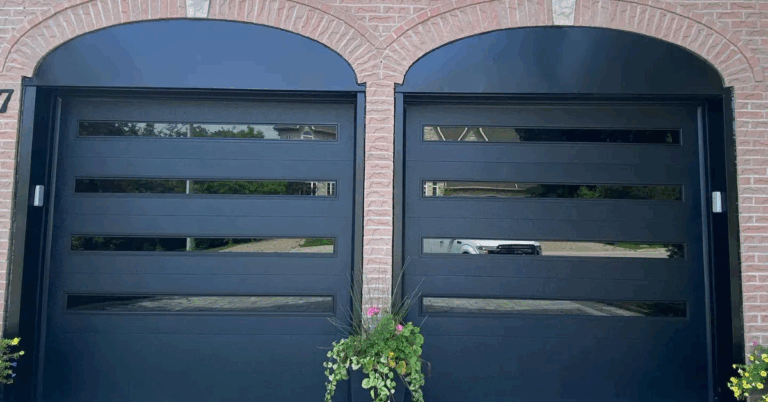Why Is a Commercial Real Estate CRM Essential for Modern Property Businesses?
In today’s digital-first real estate market, managing relationships, maintaining property listings, tracking deals, and delivering personalized client service have become increasingly complex. This is especially true in the commercial real estate (CRE) sector, where transactions involve multiple stakeholders, long sales cycles, and high-value investments. A Commercial Real Estate CRM (Customer Relationship Management) software is no longer a luxury—it’s a necessity. A well-implemented CRM streamlines business operations, enhances communication, and supports long-term profitability. This article delves into how a Commercial Real Estate CRM can revolutionize property businesses and why it should be at the core of every CRE strategy.
Understanding the Need for a CRM in Commercial Real Estate
Unlike residential real estate, commercial property deals involve a web of interactions with tenants, investors, developers, lawyers, property managers, and government officials. From leasing office space to selling retail properties or managing industrial units, the process demands efficient communication and tracking of multiple moving parts.
A traditional spreadsheet or basic database can no longer keep up with the evolving demands of the commercial market. A specialized CRM for commercial real estate offers tailored features that help agents and firms manage leads, nurture client relationships, oversee transactions, and close deals more efficiently.
Key Features of a Commercial Real Estate CRM
1. Centralized Contact Management
A CRE CRM consolidates all contacts—buyers, sellers, tenants, brokers, and partners—into one accessible platform. It tracks all interactions, documents, preferences, and history in a single profile, enabling a 360-degree view of each contact and enhancing client engagement.
2. Property Listing and Inventory Management
The CRM provides a robust system to manage property listings and inventory. Each property profile includes details like location, square footage, zoning information, occupancy status, images, floor plans, and availability. This ensures agents can quickly match the right property with the right client.
3. Lead Capture and Nurturing
An effective CRM automatically captures leads from websites, emails, landing pages, and campaigns. These leads can then be segmented, prioritized, and nurtured using drip marketing, automated follow-ups, and activity tracking—maximizing the chances of conversion.
4. Deal and Pipeline Tracking
Commercial deals often span months and include multiple decision-makers. A CRM offers pipeline management tools that let agents track every stage—from initial inquiry to proposal, negotiation, and closing. It reduces bottlenecks, identifies delays, and accelerates deal closure.
5. Workflow Automation
By automating repetitive tasks like follow-ups, appointment reminders, email campaigns, and document sharing, a CRE CRM enhances productivity and ensures no lead or deal falls through the cracks.
6. Document Management and E-signatures
With secure document storage and e-signature capabilities, contracts, leases, disclosures, and legal paperwork can be managed seamlessly within the platform, speeding up transactions and ensuring compliance.
7. Analytics and Reporting
A CRM offers detailed dashboards and reports on lead performance, agent productivity, deal cycle times, marketing ROI, and client engagement. These insights enable smarter decisions and continuous business improvement.
Benefits of Using a Commercial Real Estate CRM
1. Improved Client Relationships
With detailed client insights and communication history, agents can deliver highly personalized service. Whether it’s remembering a client’s preferences or following up at the right time, the CRM helps build trust and loyalty.
2. Faster Sales Cycle
Automation and organized workflows reduce manual effort, making it easier to respond to inquiries quickly, provide accurate information, and close deals faster.
3. Enhanced Team Collaboration
A centralized system allows teams to collaborate effortlessly. Whether working remotely or across regions, everyone can access up-to-date information, assign tasks, and share progress in real time.
4. Greater Scalability
As your real estate business grows, so do the complexities. A CRM scales with your operations, enabling you to handle more leads, manage more properties, and coordinate with larger teams without losing efficiency.
5. Compliance and Risk Mitigation
The commercial real estate industry is governed by strict regulations. A CRM helps track communication, manage contracts, and store documents securely—reducing the risk of legal or compliance issues.
Use Cases in the Commercial Real Estate Industry
1. Leasing Management
Leasing agents can use the CRM to manage tenant details, schedule tours, track lease expirations, and automate renewal reminders. This reduces vacancy periods and improves tenant satisfaction.
2. Investment Sales
Brokers handling investment properties can segment investor lists, send targeted opportunities, and track interest levels to find the best matches for properties.
3. Property Management
From maintenance requests to rent collection and tenant communication, property managers can rely on the CRM to streamline operations and keep tenants satisfied.
4. Marketing Campaigns
Marketers can build and execute targeted email campaigns, social media ads, and content marketing efforts based on CRM insights—driving more qualified leads into the pipeline.
Choosing the Right Commercial Real Estate CRM
While there are many generic CRMs available, choosing a platform specifically built for commercial real estate ensures access to industry-specific features and tools. When evaluating CRM solutions, consider:
-
Integration capabilities with your current tools (email, calendars, ERP, etc.)
-
Customization options for fields, pipelines, and reporting
-
User-friendliness for agents and staff
-
Mobile accessibility for working on the go
-
Security standards for protecting sensitive client and transaction data
Future Trends in Commercial Real Estate CRM
The CRE CRM landscape continues to evolve with advancements in technology. Here are some key trends shaping the future:
1. AI and Predictive Analytics
AI-powered CRMs can forecast which leads are most likely to convert, suggest next-best actions, and identify market opportunities before competitors.
2. Integration with IoT and Smart Buildings
Some CRMs are beginning to integrate data from smart buildings—like occupancy rates, energy usage, and maintenance needs—allowing for more proactive property management.
3. Virtual Tours and Digital Signatures
With the rise of remote collaboration, CRMs are incorporating tools for virtual property tours, online meetings, and secure digital signing.
4. Voice-Activated Assistance
Voice commands and chatbots are making it easier to log information, access data, and manage tasks hands-free, especially while agents are in the field.
Conclusion
In the dynamic world of commercial real estate, staying ahead means embracing tools that bring efficiency, organization, and insight into every facet of your operation. A Commercial Real Estate CRM is that transformative tool. It simplifies complex workflows, enhances client relationships, and drives growth through data-driven decisions. Whether you’re a solo broker, a growing agency, or a nationwide firm, investing in a CRM tailored to the CRE industry is no longer optional—it’s essential for long-term success.
Make the shift from spreadsheets to smart real estate management. Empower your team, delight your clients, and unlock the full potential of your property business with a purpose-built Commercial Real Estate CRM.







